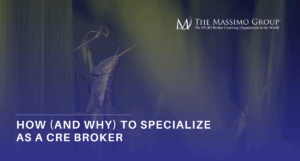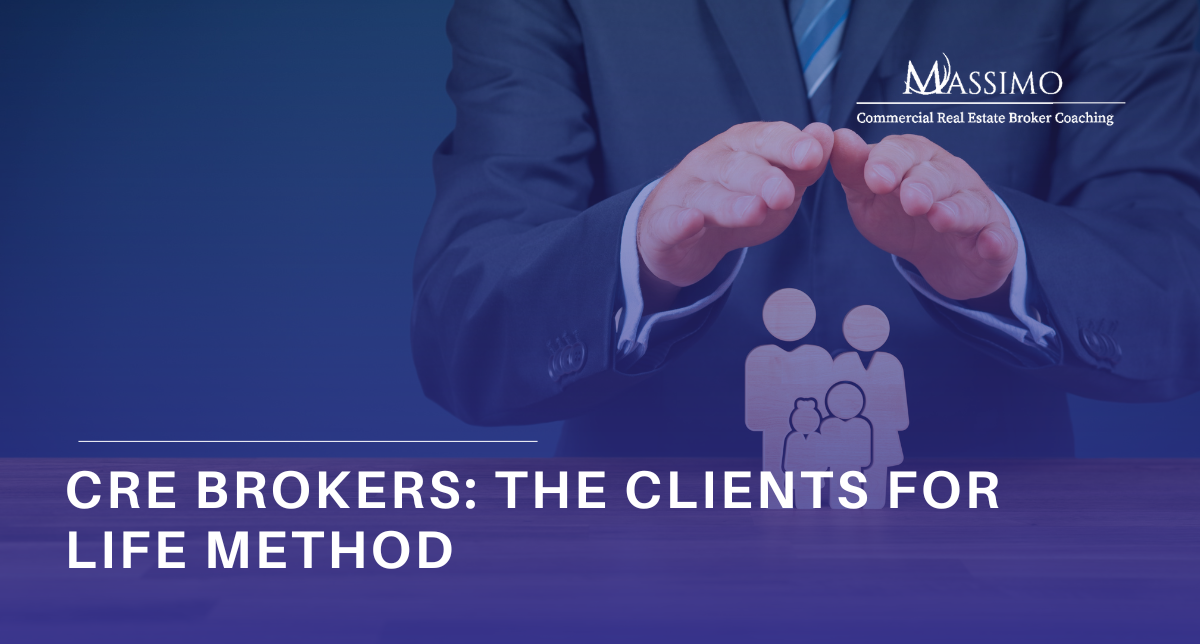
“Specialization is for insects.”
That’s what legendary computer scientist Robert Heinlein once wrote.
It’s a quote that’s been passed around business circles for years.
And while it might sound clever, it’s dead wrong in commercial real estate.
Because in CRE, specialization is what separates high-earning authorities from replaceable generalists.
Being a generalist might work in life. It’s okay to have diverse interests, read broadly, and explore multiple hobbies.
But in this business?
Specialization is everything.
It gives you focus. It builds your reputation. It creates authority, and authority is what leads to opportunity.
Why Specialization Matters More Than Ever
If you’ve ever said:
- “I’ve been doing a bit of everything lately…”
- “I go wherever the opportunity is…”
- “I’m trying to stay flexible in this market…”
Then you may be unknowingly slipping into generalism.
Here’s why that’s dangerous:
- Specificity creates believability.
- Believability creates authority.
- Authority attracts clients.
Clients don’t want a jack-of-all-trades. They want a broker who can speak confidently about the deals, trends, and challenges in their market.
When you say things like:
- “My last 5 deals were in medical office…”
- “We’re seeing a 17% increase in lease absorption in this submarket…”
- “Cap rates for this asset class are compressing faster than last quarter…”
You’re quietly building trust, and it’s that kind of insight is what makes people believe: “This is the broker for me.”
The Case Against Specialization? Let’s Talk About It.
Some brokers argue that AI makes it easier to operate in multiple sectors. That they can research any market on demand. That deals are everywhere, so why niche down?
That logic is tempting. But it ignores two things:
- Just because you can research 10 niches doesn’t mean you should.
- And just because a deal crosses your desk doesn’t mean it fits your strategy.
Important: Specialization doesn’t mean saying “no” to everything else.
It means focusing your marketing, your messaging, and your positioning on what you do best, while still evaluating opportunities when they arise.
The Quiet Trap of Generalism
Even brokers who think they’ve specialized often slip into generalism without realizing it.
They get pulled into unrelated deals. They stretch to cover neighboring markets. Or they stop updating their marketing, and slowly their brand becomes… blurry.
So here’s a simple audit for you:
Look at your last 10 deals (or active pursuits). Ask yourself:
- Are they within the same product type or market?
- Do your marketing materials speak clearly to that specialty?
- Would a prospect immediately know what you do best?
If the answer to any of those is “not really,” then now’s the time to tighten it up.
Because specialization is a constant discipline, rather than a one-time decision.
So Where Should You Specialize?
At the Massimo Group, we recommend a three-part framework to help brokers find their sweet spot:
- What do you like?: What product type or market excites you? What would you own if you could?
- What are you good at?: Are you analytical or relational? Do you thrive on high-volume outreach or long-term strategy?
- Where is the velocity?: What’s moving in your market right now? Look at the data, not your preferences.
The intersection of these three answers is where you build your career.
So all in all, specialists aren’t insects. They’re authorities.
They’re the ones who attract high-value clients, simplify their operations, and build businesses that last.
If you’ve already specialized, this is your reminder to double down.
And if you haven’t yet? There’s no better time than now.
Until next week.





